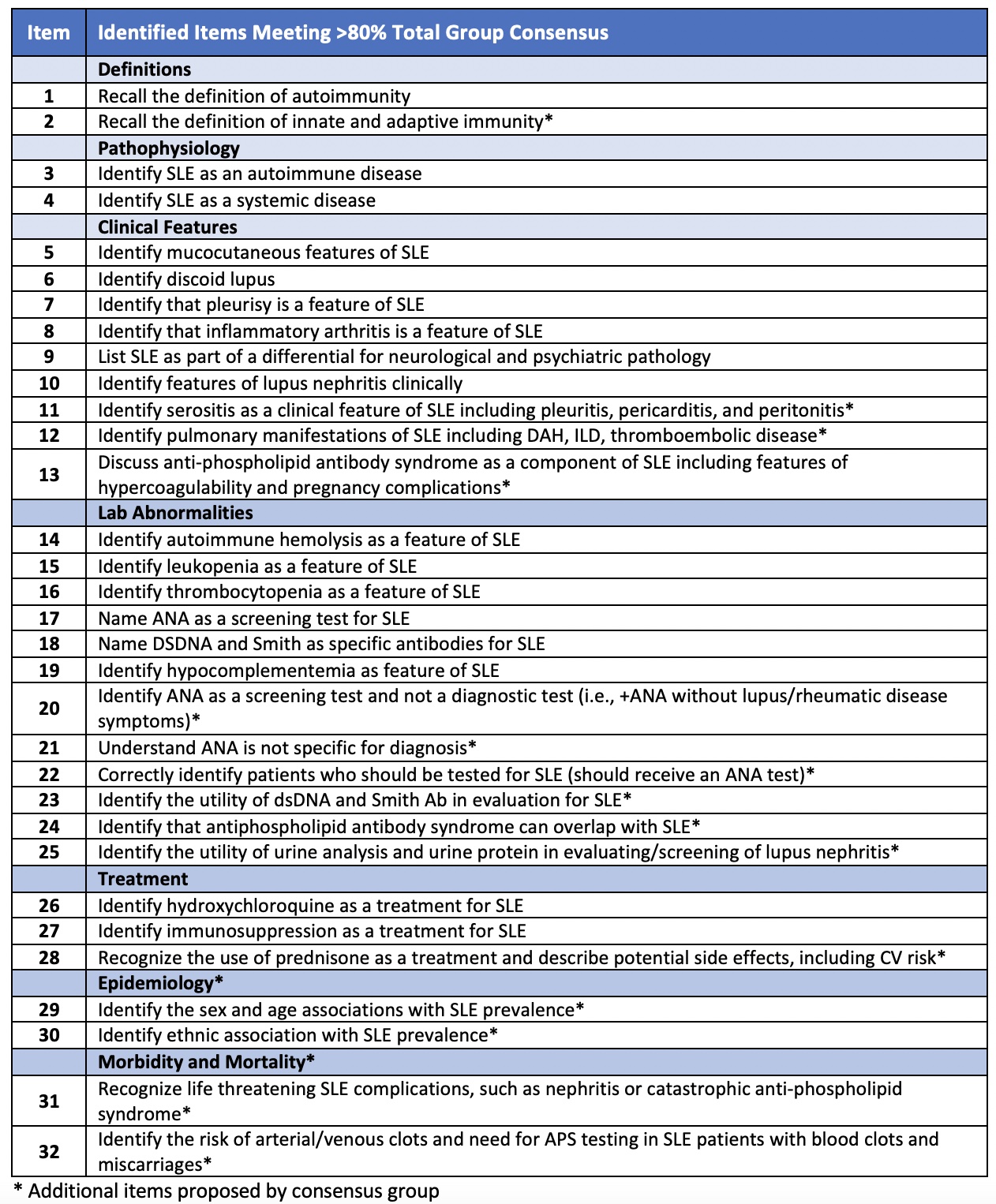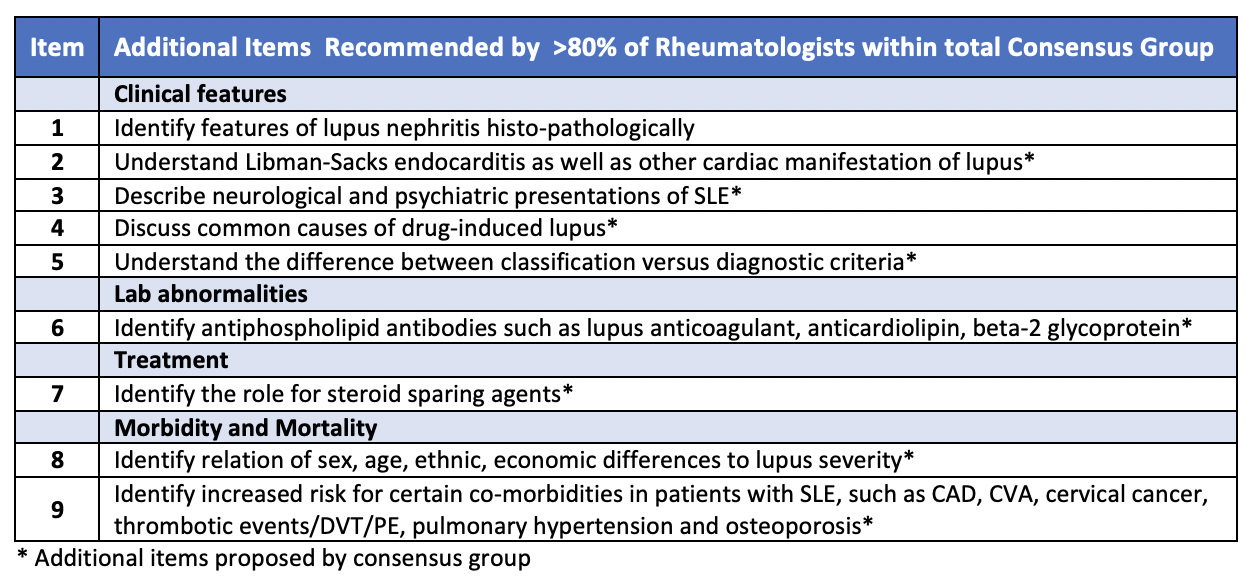Session Information
Session Type: Poster Session C
Session Time: 8:30AM-10:30AM
Background/Purpose: Creating a curriculum for teaching lupus to medical students is a challenge given the complexities and nuances of this systemic disease. Because lupus spans multiple complex systems, educators outside of rheumatology hold stake in determining what elements of lupus a graduating medical student should be familiar with; this adds further complexity to curricular design. Unfortunately, the literature offers little guidance. The aim of this study is to use consensus methodology involving various stakeholders to identify key lupus curricular items that medical students should learn about during their four year education.
Methods: 86 faculty and housestaff members from the University of Utah (UU) were invited to participate in a 3 step Delphi consensus process. Housestaff members included 3 Rheumatology fellows and 3 Internal Medicine chief residents. Step 1 involved reviewing the 21 current items in the UU medical school curriculum and requesting suggestions for additional items. In step 2, each participant rated every item’s importance to be included in the medical school curriculum using a 5-point Likert scale (1 = not at all important; 5 = extremely important). In the 3rd step, participants were given the group’s mean and mode rating for each item, reminded of their own initial rating, and asked to make a final 5-point rating. Individual responses to each step remained anonymous. After the final step, items rated ≥4 (“very important” or “extremely important”) by at least 80% of participants were retained; these identified items defined the set of lupus curricular elements representing the consensus of the group.
Results: 44 participants accepted the invitation to join our consensus project (51%); 31 participants completed all steps (37% of invited members, 70% of accepted participants). The majority were rheumatologists (16, 52%), 4 participants were from internal medicine, and 11 participants were medical school educators (6 of these medical educators also had internal medicine backgrounds).
In step 1, 61 items were added as suggestions to the curriculum leading to a total of 82 items to be rated. The consensus process eliminated 50 items, leaving 32 in the final list of identified important key teaching elements for lupus (see Table 1). In a post-hoc analysis of ratings provided by rheumatologists within the larger consensus group, 9 additional elements were identified though these did not meet total group consensus (see Table 2).
Conclusion: Using a systematic consensus exercise, a diverse group of educators participating in the lupus consensus project identified key teaching items to prioritize during medical school education. The next steps will include developing learning objectives mapped to these identified items in the development of curriculum to educate medical students about lupus.
To cite this abstract in AMA style:
Thomas J, Battistone M, Register K, Barker A. Sifting Through Complexity in a Methodological Manner: Identifying Key Items in Teaching Lupus to Medical Students Through Consensus [abstract]. Arthritis Rheumatol. 2021; 73 (suppl 9). https://acrabstracts.org/abstract/sifting-through-complexity-in-a-methodological-manner-identifying-key-items-in-teaching-lupus-to-medical-students-through-consensus/. Accessed .« Back to ACR Convergence 2021
ACR Meeting Abstracts - https://acrabstracts.org/abstract/sifting-through-complexity-in-a-methodological-manner-identifying-key-items-in-teaching-lupus-to-medical-students-through-consensus/


